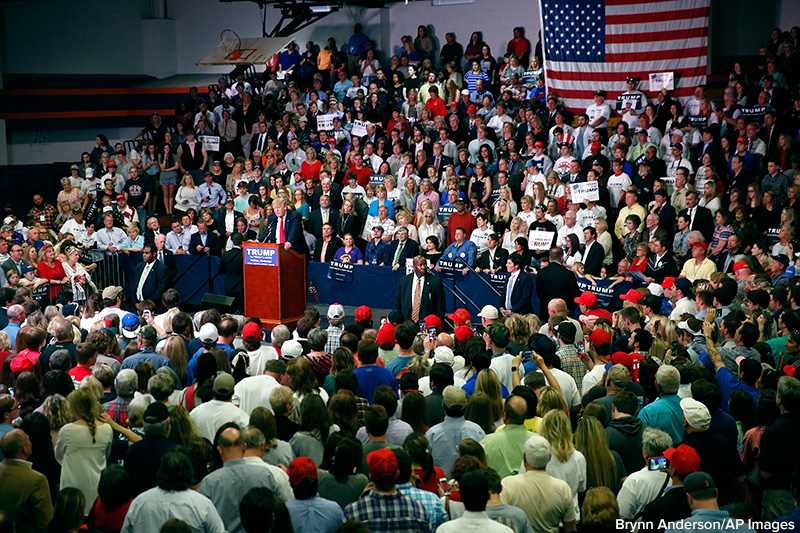
Contested Convention?
After recapping the results of the much-anticipated primaries in Ohio and Florida, Election Central touched on the possibility of a “contested” GOP convention this summer. This week, we take a deeper look into what it is, what it means, and the possibility of it happening.
Conflict over a party’s political nominee is hardly new. One of the earliest tactics was the Whig Party’s strategy of nominating several candidates at once in an effort to keep Martin Van Buren from getting a majority in the Electoral College in 1836. (Unfortunately, for that party’s leaders, the tactic didn’t work.)
Conventions: Then and Now
Once upon a time, the purpose of a party’s convention was to gather its elites to collectively choose a candidate for the general election. The systems set in place allowed for an occasional “dark horse.” Sometimes, after deadlock on the convention floor, an unexpected contender emerged. This is how James Polk began his journey to become our 11th president. In another significant twist, Abraham Lincoln finished a distant second behind William Seward in the first round of voting at the 1860 Republican convention. In 1912, Woodrow Wilson’s ultimate nomination took 24 rounds of voting.
A disastrous Democratic Convention of 1968 led to major changes in governing rules for future conventions. In recent times, the conventions have been seen as little more than pep rallies. This is because of an earlier and earlier primary and caucus season. Most candidates are typically secured long before the party gathers in June.
The Trump Factor
Every election, there are candidates who promise to “shake things up” in their party—Gary Hart (1984), Pat Buchannan (1996), Howard Dean (2004), and Rick Santorum (2012). However, all ultimately failed to secure their party’s nomination. Since 1980, nearly every presidential nominee has a strong, clear lead in the delegate count long before the primary races are complete.
And then Donald Trump came along. Despite his overwhelming popularity with Republican primary voters, Trump is frequently at odds with the prominent leadership of the Republican Party. Despite a wide margin lead ahead of other candidates, he is still far from winning the 1,237 needed delegates needed to secure the Republican nomination outright. At the same time, it is unlikely that Ted Cruz or John Kaisch will overtake his lead as the front-runner. Which leaves the possibility for a contested convention.
How Will it Work?
If, at the end of the primary/caucus cycle, Trump fails to reach the magic number of delegates, the Republicans could, for the first time in decades attend their convention (held this summer in Cleveland, Ohio) with no clear candidate. Delegates will hold a vote. In the first round, delegates are obligated to vote for a particular candidate, based on the results of the caucus/primary in the state they represent. If, at the end of the round, there is no clear majority, those delegates are freed up to vote for whomever they please. This is where it gets heated, as candidates are free to court and negotiate deals for votes.
Related Links
To learn more about the history of the nation’s party candidate selection system, listen to this Fresh Air with Terri Gross interview from NPR.


